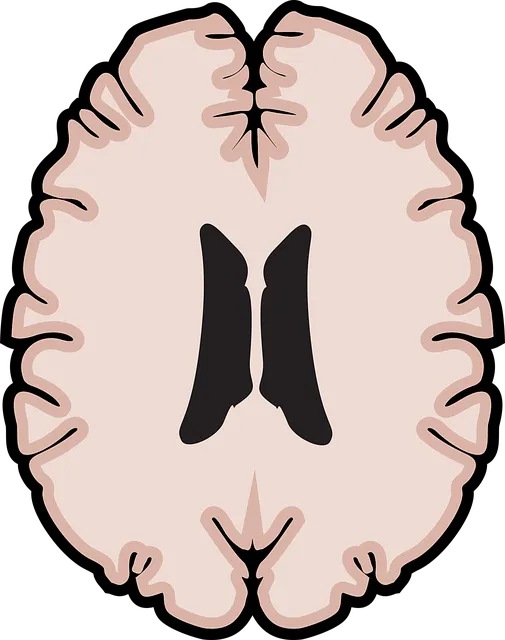Wheat Ridge Kaiser Permanente behavioral health services prioritize trauma-informed care, recognizing its profound impact on mental well-being. By understanding the physiological and psychological effects of trauma, they offer personalized interventions for conditions like anxiety and burnout. The holistic program focuses on creating safe environments, empowering individuals to process trauma at their own pace, and fostering resilience. It incorporates evidence-based practices such as Compassion Cultivation, individual and group therapy, and peer support, aiming to equip clients with long-term mental health management skills while promoting overall healing and well-being.
Trauma support services are vital in addressing the profound effects of traumatic events on individuals’ lives. This article delves into the critical role of specialized care, particularly at Wheat Ridge Kaiser Permanente Behavioral Health Services, a renowned provider. We explore ‘Understanding Trauma and Its Impact’ as a foundational step for effective support. Additionally, we discuss ‘Implementing Effective Trauma-Informed Care’ in healthcare settings, highlighting best practices. By examining these aspects, we aim to enhance access to quality trauma-focused services, such as those offered by Wheat Ridge Kaiser Permanente.
- Understanding Trauma and Its Impact: A Foundation for Support Services
- Wheat Ridge Kaiser Permanente Behavioral Health Services: An Overview
- Implementing Effective Trauma-Informed Care in Healthcare Settings
Understanding Trauma and Its Impact: A Foundation for Support Services

Understanding trauma is an essential foundation for providing effective support services. Trauma, whether it’s a single event or chronic exposure to distressing situations, can have profound and lasting effects on individuals’ mental health and overall well-being. At Wheat Ridge Kaiser Permanente behavioral health services, we recognize that trauma impacts not just the mind but also the body, shaping responses and behaviors that can persist for years. This comprehensive view is crucial in addressing the complex needs of those seeking support.
By integrating knowledge about trauma’s impact on the brain and body, mental health professionals can develop tailored interventions. This includes strategies to manage symptoms of anxiety relief and burnout prevention, which are often direct consequences of traumatic experiences. Our approach focuses on creating safe spaces where individuals feel empowered to process their traumas at their own pace, fostering a sense of healing and resilience.
Wheat Ridge Kaiser Permanente Behavioral Health Services: An Overview

Wheat Ridge Kaiser Permanente Behavioral Health Services stands as a beacon of hope and healing for individuals navigating through life’s most challenging moments. This comprehensive program integrates cutting-edge therapeutic approaches with a deeply rooted commitment to patient well-being. Their team of seasoned professionals employs evidence-based methods, such as Compassion Cultivation Practices, to foster resilience and promote mental fortitude. By addressing underlying emotional wounds and teaching effective coping strategies, they empower individuals to manage conditions like depression and enhance their overall mood.
Beyond individual therapy, the services extend to group settings, where support networks thrive. These collaborative environments encourage peer-to-peer learning and shared experiences, fostering a sense of belonging and understanding. Through tailored interventions, Wheat Ridge Kaiser Permanente aims to equip clients with the tools necessary for long-term mental health management, enabling them to lead fulfilling lives despite past traumas or current challenges.
Implementing Effective Trauma-Informed Care in Healthcare Settings

Implementing effective trauma-informed care in healthcare settings is essential, especially within behavioral health services like those provided by Wheat Ridge Kaiser Permanente. This approach recognizes that individuals with traumatic experiences often have unique needs and require specialized support. By adopting trauma-informed practices, healthcare providers can create a safe and supportive environment, fostering better patient engagement and improved outcomes.
At Wheat Ridge Kaiser Permanente behavioral health services, prioritizing self-esteem improvement, coping skills development, and burnout prevention strategies for healthcare providers is integral to delivering high-quality care. These initiatives ensure that both patients and caregivers receive the necessary tools to navigate and overcome trauma, promoting healing and overall well-being.
Trauma support services are essential for fostering healing and resilience among individuals affected by traumatic events. As demonstrated by Wheat Ridge Kaiser Permanente behavioral health services, integrating trauma-informed care into healthcare settings can significantly improve outcomes. By understanding the impact of trauma and implementing effective strategies, such as those discussed in this article, we can create more supportive environments that address the unique needs of survivors. This approach ensures that individuals receive comprehensive care tailored to their experiences, ultimately enhancing their journey towards recovery and well-being.






